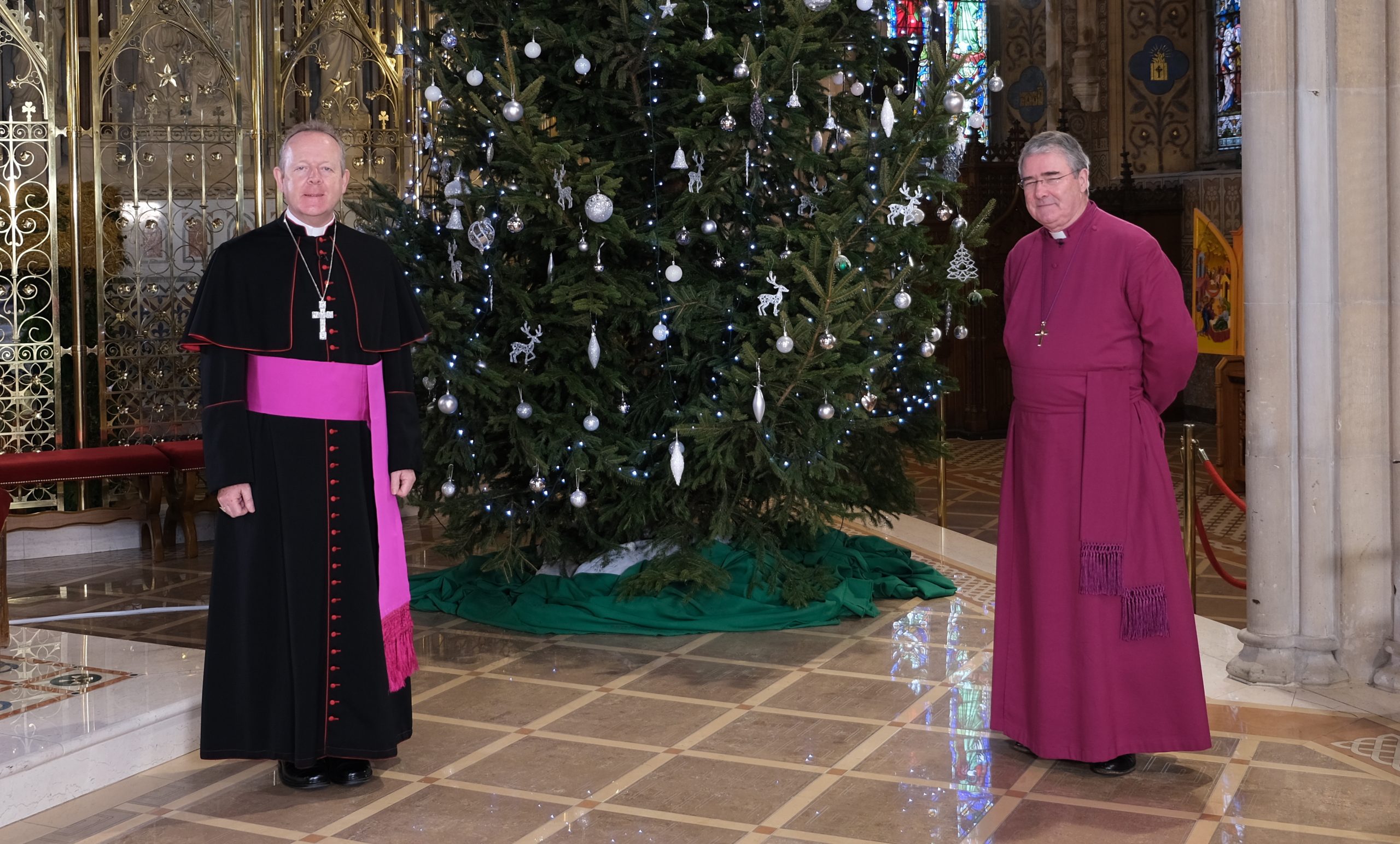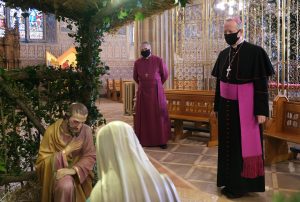‘So they went with haste and found Mary and Joseph, and the child lying in a manger.’
Luke chapter 2 verse 16
There is an old prayer sometimes used around this time of year which talks about the time when Jesus Christ “came to visit us in great humility”. In one of Saint Paul’s letters, he talks about “Jesus not counting his equality with God something to be taken advantage of but taking the form of a servant …”
Could one of the positive consequences of this Christmas be that we have had to relearn how to approach it with humility and also how to celebrate it as servants of one another, rather than as lords of all we survey? For that is what we have been doing these past months. The face coverings and the empty streets have not been signs of fear and desolation. Instead, they are the evidences of love and of a resolve to secure the future.
They say that Saint Francis created the first Christmas crib back in 1223 because he wanted to capture the humility of the incarnation. When the time was right God humbled himself. He became part of his own creation in a particular way and in a particular place. His Mother was one of the “poor ones” who prayed daily in the Temple for the redemption of Israel. Palestine was an out of the way place and the “Holy Family” of Jesus, Mary and Joseph attracted little attention at the time. That was to be the pattern of his life. He ate his bread in quietness for thirty years, working at his father’s trade as the means whereby he was prepared by his Father for the public vocation had been laid out for him. Apart from the occasion of his finding in the temple, we have no words of his as he grew up in that workman’s family – perhaps he came to speak with such power because he had learned to love silence.
He was not the citizen of a great Empire like Saint Paul, and throughout his life he held no office or position of religious dignity or civic standing. What has survived of his teaching is usually expressed in simple pictorial speech. Like most people of his time, he seems to have had little or no formal education, yet he was never at the mercy of the subtle question, and he was able to cut straight through the pedantry of the scribes.
We are now celebrating the beginning of this life, quietly and perhaps still with some trepidation. We have had to concede that we do not really understand the world and acknowledge that we cannot “manage it”. But Christmas is the time when we call to mind the coming into the world of God himself. And he came, not to manage it, but to redeem it. He came not to dominate it and to exploit if, but to serve it and to bring it to its intended fruition.
He came and he lived (and died) in great humility as the servant of all.
+Eamon
+John
Church of Ireland Archbishop of Armagh





You must be logged in to post a comment.